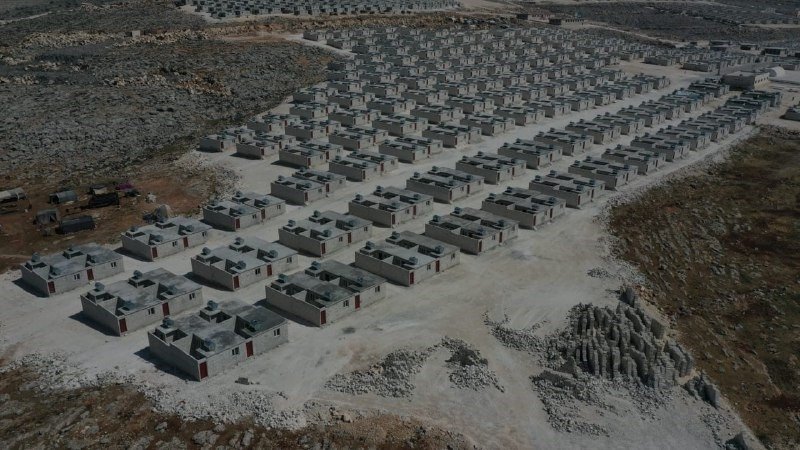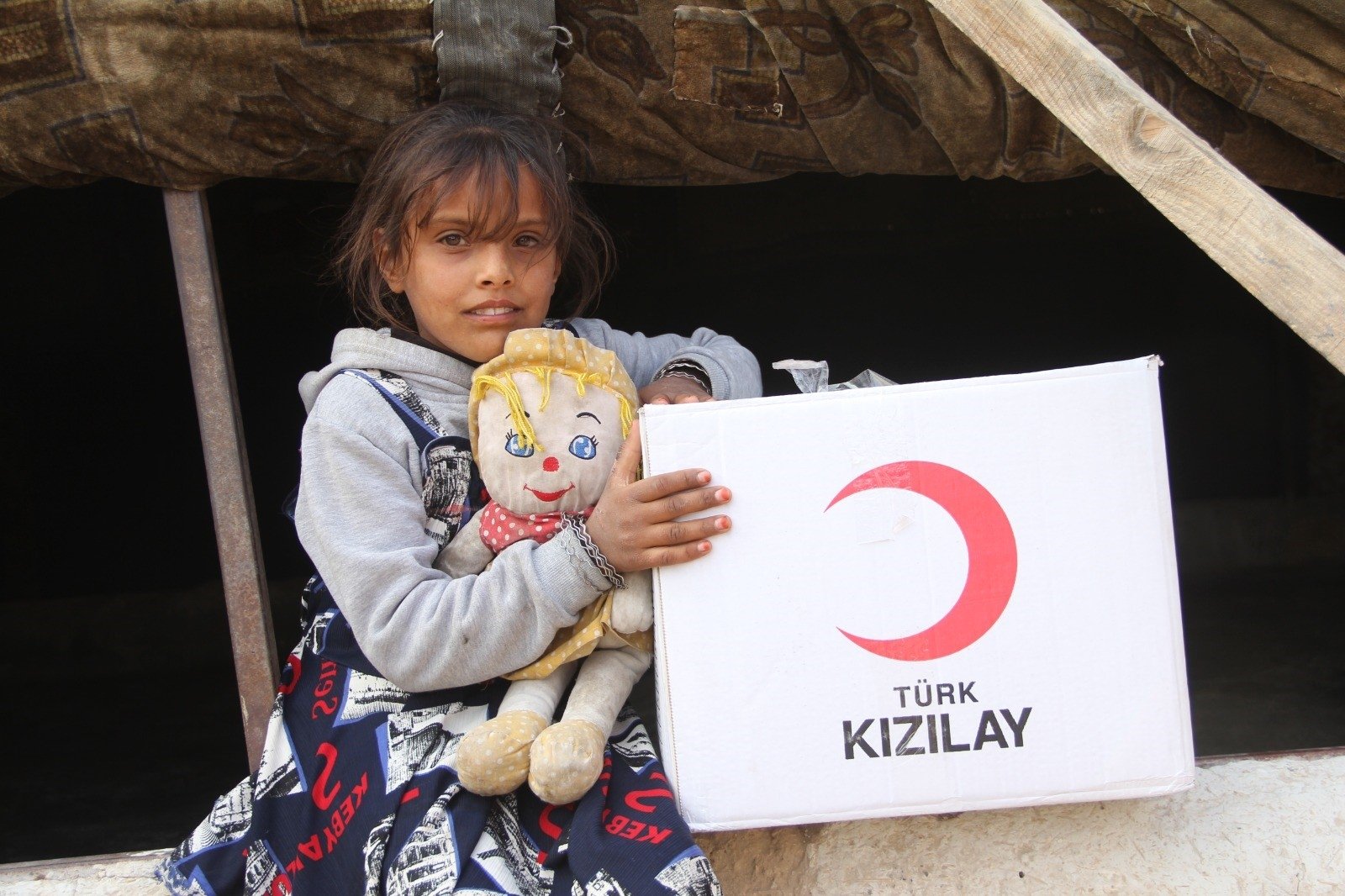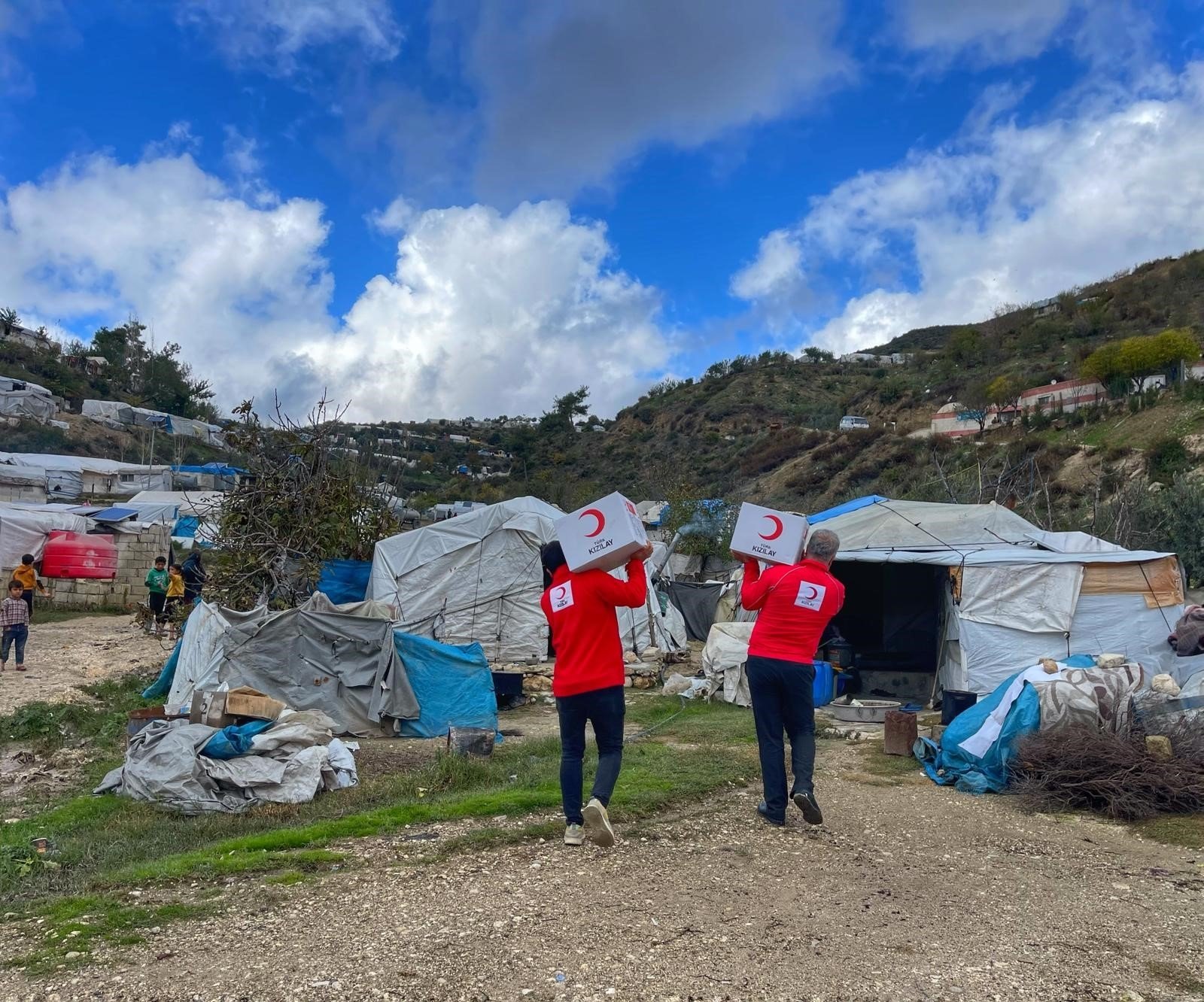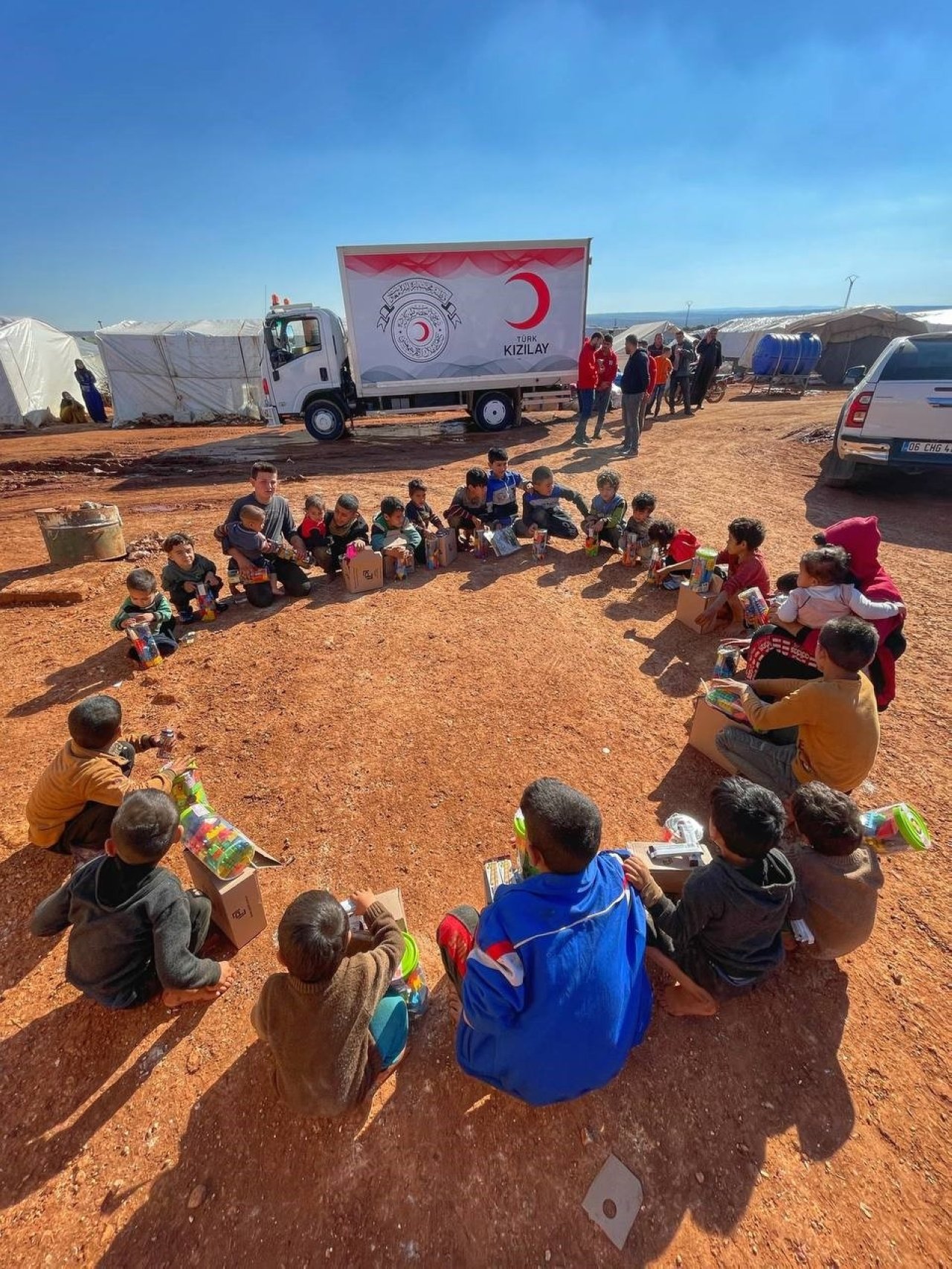© Turkuvaz Haberleşme ve Yayıncılık 2024
As it looks to establish a safe zone rid of terrorists along its border with northern Syria, Türkiye plans to build 100,000 briquette houses in the region for the internally displaced people during the decadelong Syrian civil war.
When the war began, Türkiye opened its doors to those who had to flee the country to save their lives and now hosts more refugees than any other country in the world. Simultaneously, Ankara spearheads humanitarian aid efforts for Syrians both at home and in opposition-controlled parts of northern Syria.
The country has intensified its diplomatic and military efforts in recent years to eradicate the PKK/YPG’s terrorist presence and establish a 30-kilometer-deep (18.6-mile) safety corridor along its border with Syria.
Starting in 2016, it cleared Syria’s Idlib province of PKK and Daesh elements through a trio of counterterrorism operations called Euphrates Shield, Olive Branch and Peace Spring.
The operations saw nearly 17,000 terrorists eliminated, the region secure and the civilians displaced by terrorism returned to their homes.
As part of its reconstruction project funded by international aid organizations and Turkish nongovernmental organizations (NGOs), Türkiye is aiming to deliver 100,000 briquette homes to hundreds of thousands of civilians by the end of 2022. The most recent batch of these briquette settlements, 600 to be exact, was inaugurated on Nov. 13 in Idlib by Interior Minister Süleyman Soylu.

The Turkish Red Crescent (Kızılay) leads the charge of constructing settlements for civilians living under challenging conditions in Syria.
The organization, aiming to erect a total of 7,500 briquette homes, has ensured families have moved into 3,711 of the completed ones so far.
The rest of the settlements are expected to be delivered within 2023.

In the meantime, the Red Crescent has opened two schools with 22 classrooms in the Idlib village of Atalay, which enabled access to education for 3,220 children living in briquette settlements and irregular camps.
Some 4,453 families in the five camps and orphanages coordinated by the Red Crescent have regularly distributed boxes of food and hygiene products to 20,907 people in need every month.

The organization has been carrying out dedicated humanitarian aid operations in camps under its responsibility as well as camps scattered around the region since the civil war broke out in 2011. It has met the essential needs of thousands of people over the years, bringing them tents, bread, water, food, hygiene items, clothes and heating materials.
Since 2021, the Red Crescent has handed out 8,360,325 boxes of food and 2,848,287 boxes of hygiene kits to people in need and sent out cross-border aid provided by national and international funds, domestic and foreign NGOs, individual and corporate donors, via 66,824 lorries.

The PKK terrorist group and its Syrian offshoot, the YPG, controlled much of northeastern Syria after the forces of Syrian regime leader Bashar Assad withdrew in 2012. They have been waging a bloody terrorist campaign against Türkiye and the region’s locals for decades, attacking security forces and civilians. The PKK has singlehandedly been responsible for the deaths of over 40,000 people since 1984, with its massacres peaking especially in the 1990s.
Ankara has been targeting the terrorist groups in the region with a cross-border aerial campaign called Operation Claw-Sword. The counteroffensive is both in retaliation to a deadly bomb attack in Istanbul and rocket attacks on its southeast that left in total eight dead and over 100 wounded, as well as to establish the security strip along the Turkish border Ankara has vowed to build.
Türkiye is committed to destroying the PKK terrorist group until its last terrorist is eliminated, President Recep Tayyip Erdoğan said last week as he underlined the country’s determination to get rid of Syria’s Tal Rifaat and Manbij areas of terrorists with a ground operation.
The Turkish Armed Forces (TSK) and the Syrian National Army (SNA) have been awaiting the order for the operation; civilians in Azaz, a town sitting right across Türkiye’s Kilis province and home to hundreds of thousands who fled PKK/YPG’s occupation, are also anticipating it to be able to return home.
